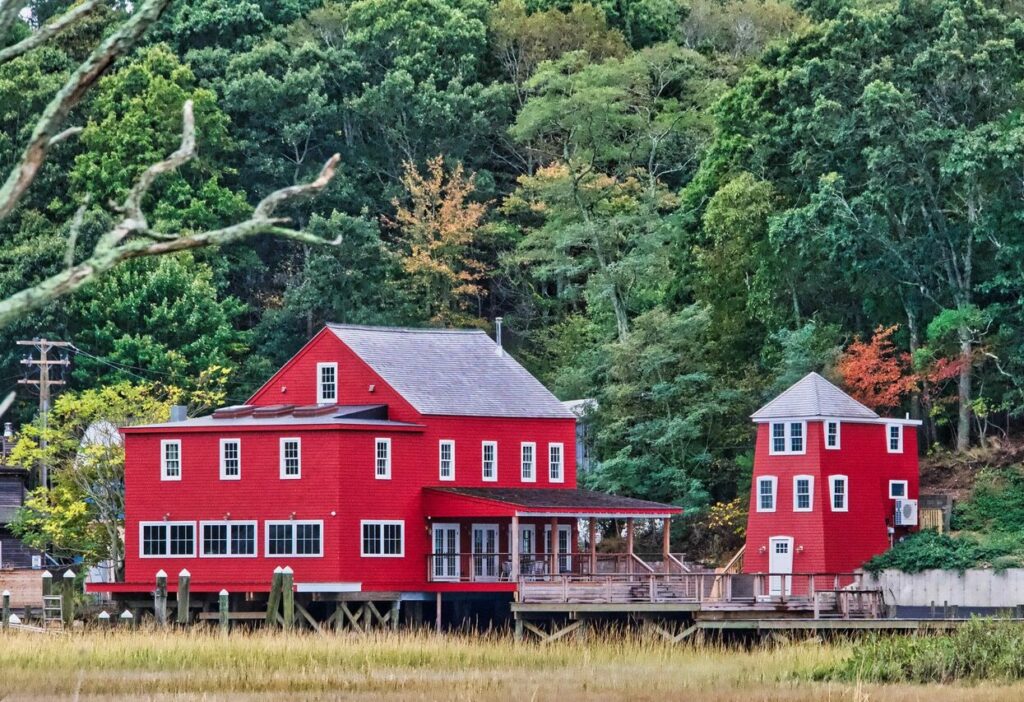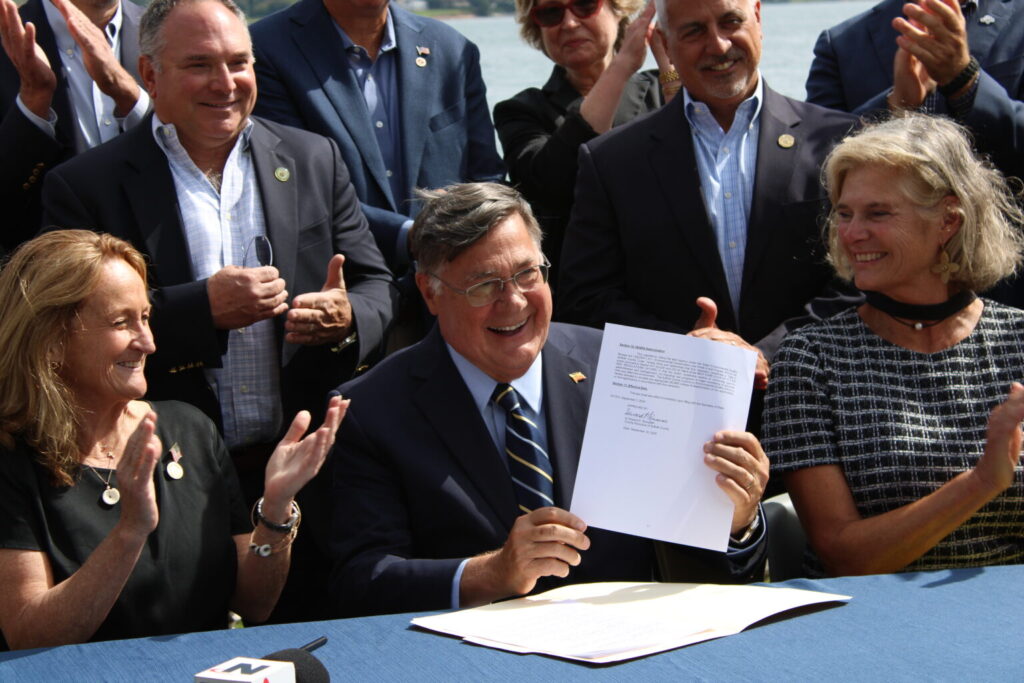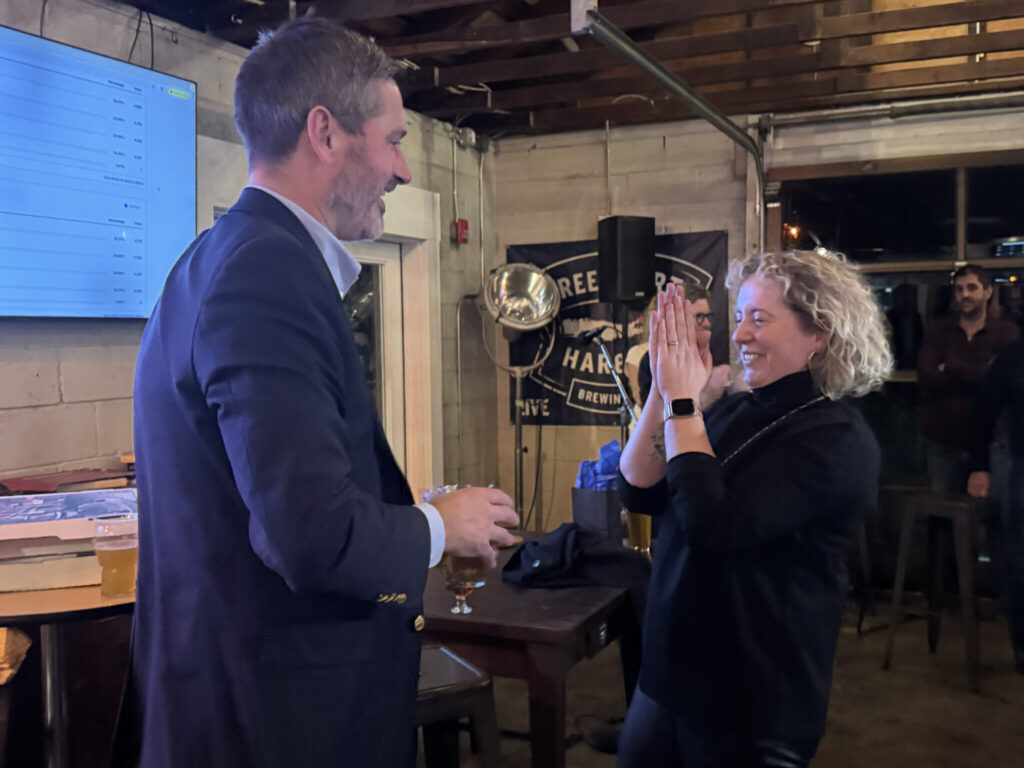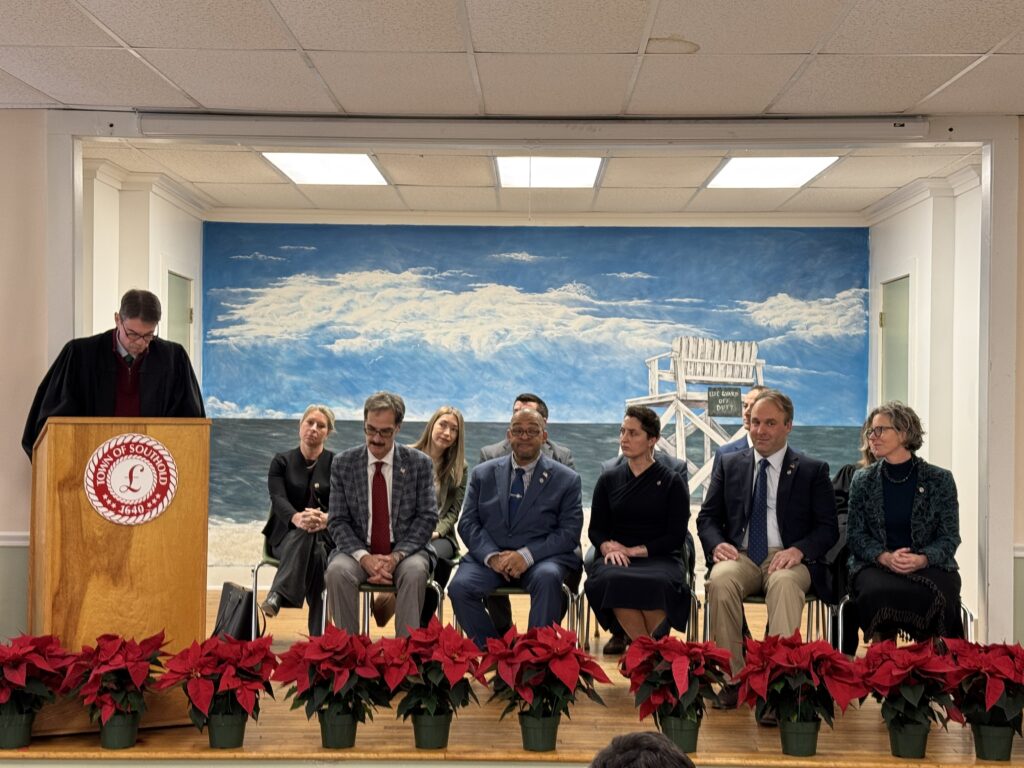State awards Sidor Farms $400K to expand capacity, pay tribute to potato farming history

A Mattituck farm is among the recipients of more than $10 million in state grant funding recently awarded to Long Island initiatives.
Martin Sidor Farms Inc. was awarded a total of $400,000 through the state’s annual Regional Economic Development Council’s competition. According to a booklet detailing the winning proposals, the grant money will be used to expand the farm’s North Fork Potato Chip processing capacity by adding a new production facility and potato museum at the Mattituck farm.
“We’re very happy to achieve this,” potato farmer Martin Sidor said in an interview Tuesday morning. Nearly 20 years ago, the third-generation potato farmer and his wife, Carol, purchased machinery to begin expanding their operation and making potato chips. The move may have raised some eyebrows at the time, but it has helped the farm’s bottom line in what Mr. Sidor described as“in-line diversification.”
“I was young enough to say ‘Let’s try this,’” he recalled. “I still know the potato end of it, but I was reeducated on the other end: distribution, manufacturing. It’s a different animal.”
The grant funding will help them further expand operations for the potato chips, which now come in seven flavors and are distributed nationwide. Ms. Sidor, who handles the production and sales of the chips, said one distributor was moving 33 pallets a week at the height of summer, their busiest season.
“Our sales have grown,” she said. “And we ran out of space with the distributor, so it goes kind of hand in hand. The more he grows, the more we need to, and putting chips in the parking lot on pallets is not the answer.”

As for a potato museum, the Sidors said they are still fine tuning plans. They’re envisioning more of an education- based facility that will pay homage to the storied local history of the Long Island potato and provide a place where future generations can learn about the area’s agricultural roots.
“We’d like a little ag classroom, with a retired science teacher that the state actually helps provide, showing kids the soil and how this grows and that grows. I think it’s a no-brainer,” Mr. Sidor said.
Farm equipment that dates to the 1920s and ’30s and many old photographs could also be a part of the display. With five decades of farming under his belt, Mr. Sidor has no shortage of photographs and stories to share, like farmers who can recall a young Carl Yastrzemski on the back of a potato seeder picking up pieces of seed and trying to hit them with a stick.
“It’s very real to all of us on the farm,” Mr. Sidor, 71, said of the industry, which has dwindled in the last four decades. “This whole road … this was potato country. To me, it’s just a road in the winter that’s hell to drive through with snow and wind and dust. But Oregon Road resonates with people. It’s amazing.”
He continues to farm 100 acres of land along Oregon Road.
“When I came home from college — I graduated in 1973 — there were still 35,000 acres,” he said, of working potato farms.
Rob Carpenter, executive director at the Long Island Farm Bureau, estimates that number is now in the 1,000to 1,500-acre range.
He said the recent grant announcement is exciting for both the Sidor family and wider farming community and a great opportunity to partner with the state to secure the future of agriculture.
“Today, with growing costs for business, farmers are looking for new opportunities for growth,” Mr. Carpenter said. “The ability to expand their factory and take advantage of growth in the business will help to keep their
farm in production.”
In 50 years of farming, Mr. Sidor has seen it all, from crops destroyed by disease or too much rain to equipment breakdowns and, more recently, supply chain disruptions caused by the COVID- 19 pandemic and war in Ukraine.
Before the war, Ukraine exported nearly half of the world’s total supply of sunflower oil. The conflict has disrupted the global supply and led to cost increases, in turn impacting businesses like the Sidors’, who used sunflower oil to fry their kettle-cooked chips but have turned to other vegetable oils as supply is limited.
“Like in any business, there are ups and downs,” Mr. Sidor said.
The Sidor Farm project is one of 12 on Long Island that received funding under the state program, which was established in 2011.
Statewide, more than $68 million was awarded to support 74 shovelready projects that “support impactful projects that align with each region’s strategic goals,” according to a press release.
Applications for aid are reviewed by regional councils, including the Long Island Regional Economic Development Council, which made recommendations to determine the winners.
“I’m proud to announce this next round of awards that were recommended by stakeholders who live and work in the regions they represent,” Gov. Kathy Hochul said in a statement. “This investment will help bring more opportunity for New Yorkers, spur economic development, and fuel the future success of communities across our state.”
Other notable projects on the East End include a $24,500 grant awarded to Conscience Point Shellfish Hatchery in Southampton to expand their operations and $457,000 to the Bridgehampton Child Care and Recreational Center to expand a workforce training program for underserved individuals.









